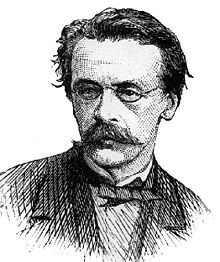
To state the truth at once in its neglected simplicity, our claim [to Oregon] is by the right of our manifest destiny to overspread and possess the whole of the continent which Providence has given us for the development of the great experiment of liberty and federated self-government entrusted to us.
Social philosopher, essayist, publisher, and the originator of
the term 'Manifest Destiny.'
As the
co-founder and editor of the Democratic Review and the New York
Morning News, John O'Sullivan was described by his friend Julian
Hawthorne as "one of the most charming companions in the
world...always full of grand and world-embracing
schemes."
In the
final days of 1845, O'Sullivan introduced one of these schemes to a
society anxiously awaiting the revelation of a galvanizing
force. In his essay entitled "The True Title," O'Sullivan
captured the unsettled impulse and aspirations of the young
American republic by repeating an electrifying phrase he had
already used in other essays published in the Democratic
Review. "To state the truth at once in its neglected
simplicity, our claim [to Oregon] is by the right of our manifest
destiny to overspread and possess the whole of the continent which
Providence has given us for the development of the great experiment
of liberty and federated self-government entrusted to us."
For more on Manifest Destiny, click here
O'Sullivan's phrase was immediately adopted by the expansionist
politicians in Congress and the White House. "A free,
confederated, self-governed republic on a continental scale -- this
is Manifest Destiny!" declared Senator Daniel Dickinson of New
York. Within days, President Polk was using the phrase with
his cabinet, and before long, the press was lauding Manifest
Destiny as the new big thing. Overnight, Americans began
claiming that expansion to the Pacific Ocean was prearranged by
heavenly authority, and many of America's best and brightest
personalities were eager to affix their names to this
manifesto. Among them were Ralph Waldo Emerson, William
Cullen Bryant, Alexander Everett, and James Bennett, to name just a
few.
Certainly, O'Sullivan could never have imagined how a simple turn
of phrase could so decisively redirect the course of history.
Related People
Related Events
Related Flashpoints